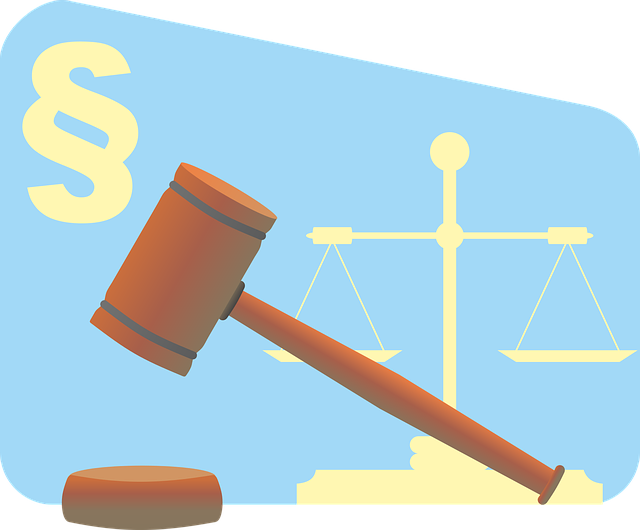Financial fraud, a complex and pervasive crime, causes significant economic and social harm, impacting individuals, businesses, and economies. While technology aids in detection through advanced analytics and machine learning, it raises concerns regarding privacy and the Sixth Amendment Rights in Court. Balancing these factors is vital for fair trials in white-collar cases, emphasizing the importance of internal controls, employee training, intelligence sharing, and legal standards, especially grand jury proceedings and search warrants, to combat fraud effectively while upholding individual rights.
Financial fraud, a subtle yet potent threat to global economies, demands vigilant detection. This article delves into the intricate world of fraud, exploring its various types and profound impact on individuals and institutions. We uncover the evolving role of technology in safeguarding financial systems, while also examining legal considerations, especially regarding Sixth Amendment rights in court proceedings. Furthermore, practical strategies for prevention, investigation, and mitigation are discussed, providing insights crucial for professionals navigating this complex landscape.
- Understanding Financial Fraud: Types and Impact
- The Role of Technology in Fraud Detection
- Legal Considerations: Sixth Amendment Rights in Fraud Cases
- Strategies for Effective Fraud Prevention and Investigation
Understanding Financial Fraud: Types and Impact

Financial fraud is a complex and insidious crime that can have devastating effects on individuals, businesses, and even entire economies. Understanding the various types of financial fraud is crucial for effective detection and prevention strategies. Common forms include identity theft, where criminals impersonate others to gain access to sensitive information; investment scams, luring victims with false promises of high returns; and insurance fraud, involving false claims for compensation. These schemes can range from small-scale operations targeting vulnerable individuals to elaborate, high-stakes cases orchestrated by well-organized criminal networks across the country.
The impact of financial fraud extends far beyond monetary losses. It erodes trust in financial institutions and can disrupt entire industries. For corporate and individual clients alike, the consequences may include legal battles, damaged reputations, and long-lasting financial instability. Navigating these complex cases requires a deep understanding not only of financial systems but also of the legal framework, such as the Sixth Amendment Rights in Court, which plays a critical role in ensuring fair trials for those accused of fraud—a crucial aspect in high-stakes financial fraud investigations.
The Role of Technology in Fraud Detection

The role of technology in financial fraud detection has become increasingly vital as we navigate the complex landscape of modern banking and commerce. Advanced data analytics and machine learning algorithms now play a pivotal role, enabling analysts to uncover subtle patterns and anomalies indicative of fraudulent activities. By sifting through vast datasets, these tools can identify suspicious transactions, unusual behavior, and potential red flags that might otherwise go unnoticed by human eyes.
In the realm of white-collar defense, where high-stakes cases often hinge on intricate financial details, technology serves as a double-edged sword. While it empowers prosecutors to build robust cases against accused fraudsters, it also requires careful consideration of an individual’s Sixth Amendment Rights in Court. For his clients, effective legal strategies must balance the benefits of technological evidence with the need to protect privacy and ensure fair trials, especially when dealing with complex financial fraud accusations.
Legal Considerations: Sixth Amendment Rights in Fraud Cases

In financial fraud detection, legal considerations play a critical role, especially when it comes to the Sixth Amendment Rights in Court. These rights, guaranteed by the U.S. Constitution, ensure that every individual accused of a crime—including white-collar and economic crimes—is afforded due process. This means they have the right to a speedy trial by an impartial jury, protection from self-incrimination (not forcing them to be a witness against themselves), and access to legal counsel. Understanding these rights is crucial for both corporate and individual clients involved in fraud cases, as it dictates how evidence is handled, admissions are made, and defenses are constructed.
When navigating financial fraud cases, legal professionals must balance the need for effective fraud detection with the preservation of their clients’ Sixth Amendment Rights. This delicate equilibrium ensures that justice is served while protecting the rights of those accused. In terms of practice, this involves meticulous record-keeping, transparent communication with clients, and adherence to legal standards designed to safeguard against improper coercion or self-incrimination.
Strategies for Effective Fraud Prevention and Investigation

Fraud prevention and investigation require a multi-faceted approach to stay ahead of evolving tactics. One key strategy is implementing robust internal controls and procedures that limit access to sensitive financial data, ensure data integrity, and monitor transactions for anomalies. This includes regular security audits, employee training on fraud awareness, and the use of advanced analytics to identify suspicious patterns.
Additionally, collaboration between respective business, philanthropic, and political communities across the country is vital. Sharing intelligence and best practices can provide a comprehensive view of emerging scams and enable quicker responses. The Sixth Amendment Rights in Court play a crucial role as well; while protecting individual rights, they also allow for effective investigative techniques like grand jury proceedings and search warrants to uncover fraudulent activities.
In conclusion, financial fraud detection is a complex landscape that requires a multi-faceted approach. By understanding various types of financial fraud and their significant impact, leveraging advanced technology for early detection, and adhering to legal considerations like the Sixth Amendment Rights in Court, organizations can effectively prevent and investigate fraudulent activities. Implementing robust strategies ensures not only compliance but also strengthens the integrity of financial systems, ultimately fostering trust among stakeholders.






